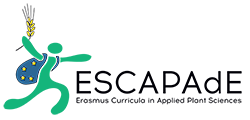English title:
Using bioinformatics for expression profiling by next generation sequencing
Course ID:
790379
ECTS credits:
2,0
Title in native language:
Using bioinformatics for expression profiling by next generation sequencing (in Eng.)
Using bioinformatics for expression profiling by next generation sequencing (in Eng.)
Term Semester:
Spring/Summer
Instruction language(s):
English
Course content:
We will cover the following topics:
- Next Generation Sequencing (NGS): theory and application
- NGS for gene/transcript expression profiling: RNA-Seq protocols and data-processing
- The power and limitations of RNA-seq: Complementarity with expression profiling by microarrays
- Characterizing NGS technology, consequences of RNA-seq theory for understanding results
- Comparing approaches to analysis: current technical developments and challenges
- Signal-level data RNA-Seq processing to applications and interpretation of results
The course is held in English.
We look forward to seeing you!
- Next Generation Sequencing (NGS): theory and application
- NGS for gene/transcript expression profiling: RNA-Seq protocols and data-processing
- The power and limitations of RNA-seq: Complementarity with expression profiling by microarrays
- Characterizing NGS technology, consequences of RNA-seq theory for understanding results
- Comparing approaches to analysis: current technical developments and challenges
- Signal-level data RNA-Seq processing to applications and interpretation of results
The course is held in English.
We look forward to seeing you!
Expected previous knowledge:
A familiarity with computer based methods and concepts of data analysis is highly<br>recommended (eg. by completion of 791330)
Learning outcomes:
IStudent will be able to describe the process of the gene/transcript expression profling by the sequncing technology, its evolution (towards NGS) and application. Student will be able to list the up to date RNA-Seq protocols and data-processing approaches.
Student will be able to compare the expression profiling technologies (RNA-Seq and microarrays) and identify power and limitations of each of them. Student thus will be able to identify recommended application scenarios for both technologies.
Student will know how to apply the state of the art academic software (command line as well as in the R environment) for RNA-Seq data processing. Will also know how to apply appropriate software for downstream analysis.
Student will be able to compare different approaches for RNA-Seq data analysis based on the current technical developments. Will also be able to identify the challenges in the field.
Based on the performed analysis student will be able to characterize the NGS technology and explain the obtained results in light of the consequences of the RNA-Seq theory.
Student will be able to asses the results from both gene and transcript level analysis. Will also be able to draw a conclusion of influence of extension of the expression profiling from gene to the transcript level.
Student will be able to compare the expression profiling technologies (RNA-Seq and microarrays) and identify power and limitations of each of them. Student thus will be able to identify recommended application scenarios for both technologies.
Student will know how to apply the state of the art academic software (command line as well as in the R environment) for RNA-Seq data processing. Will also know how to apply appropriate software for downstream analysis.
Student will be able to compare different approaches for RNA-Seq data analysis based on the current technical developments. Will also be able to identify the challenges in the field.
Based on the performed analysis student will be able to characterize the NGS technology and explain the obtained results in light of the consequences of the RNA-Seq theory.
Student will be able to asses the results from both gene and transcript level analysis. Will also be able to draw a conclusion of influence of extension of the expression profiling from gene to the transcript level.
Teaching and learning methods:
Lecture with exercises: In addition to lectures, there particularly will be exercises using
computers. We will have sufficient breaks between sessions. Start and end times of individual sessions will be announced at the beginning of the course.
computers. We will have sufficient breaks between sessions. Start and end times of individual sessions will be announced at the beginning of the course.
Exam method:
Successful participation in the exercises qualifies as achieving the unit goals.
So far, everyone actively participating in the practical sessions has passed the course
easily.
So far, everyone actively participating in the practical sessions has passed the course
easily.
Organisation: University of Natural Resources and Life Sciences Vienna
Country:
Austria
Acronym:
BOKU
ERASMUS+ code:
A WIEN03
Teaching period summer semester:
22. Feb 2021 - 30. Sep 2021
Teaching period winter semester:
13. Oct 2020 - 21. Feb 2021
University website:
